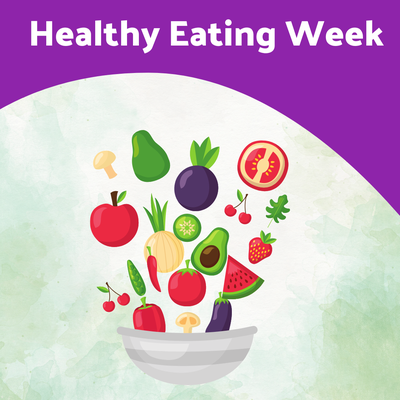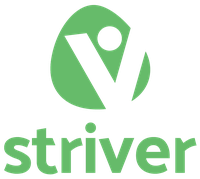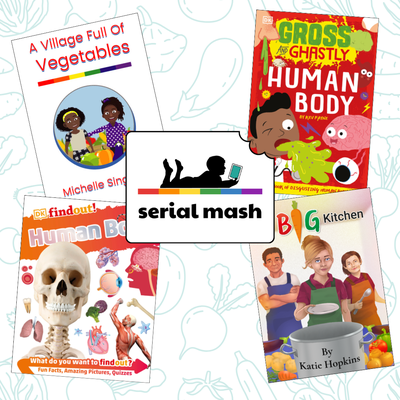May 30, 2024
This year’s British Nutrition Foundation (BNF) Healthy Eating Week runs from 10th – 14th June 2024.
The aim of the week is to bring the UK together to focus on key health messages and promote healthy habits. This year’s five themes are:

There are guides and posters that explain more about the challenges and the week is open to all UK nurseries, schools, universities and workplaces, and registration is free!
There's also a range of 2Simple resources that can be used to support schools during Healthy Eating Week.
Healthy eating helps with a range of physical and mental developments:
Currently, only 18% of children aged 5-15 in England meet the recommended 5-a-day intake of fruits and vegetables (Public Health England, 2021), and children aged 4-10 consume an average of 14% of their daily energy intake from free sugars, which is more than double the recommended limit of 5% (NHS, 2020). In the UK, about one in three children aged 10 to 11 are overweight or obese (GovUK).
If you subscribe to Purple Mash you can find all our Healthy Eating resources here ▶▶▶
Start the week by introducing key information with the different food groups, exploring how much of each should be in a person's daily diet. Children could take it in turns to read the information in the help box, and then think of examples of food to go into each group.
Encourage children to make a healthier choice with with a Healthy Eating Plan. Younger students could work together to create a whole-class plan with the teacher as scribe. There are some great topics for discussion in the plan.
Plan for success by creating a Dinner or Lunch menu for each day of the week, with plenty of fibre and a different protein each time. Can children include non-meat proteins in their meals as a further challenge?
Across your school, you could set up a blog using 2Blog, allowing children to share their favourite family recipes, or create a Display Board where children can submit their favourite healthy meals, allowing students to 'Be the Chef'.
Our PE and wellbeing resource Striver is perfect for Healthy Eating week and will help pupils, teachers and parents to move more and get active together. Striver is a whole school (EYFS-Y6) scheme of work for PE written for non-specialists. The lessons are easy to follow and include images and extension activities making it accessible to teachers from all backgrounds. Simple one-touch assessment makes progress tracking quick and easy.
The PE and wellbeing app includes 6 wellbeing units that focus on mindfulness, nutrition and the importance of sleep. The units aim to boost self-esteem and build resilience that children study at increasing levels of depth as they move up through the school. This reinforcement process has been designed so that by the time children leave your school, they not only understand these topics but can put what they have learned into practice in a meaningful way.

Striver also helps you to tick all the boxes for improving sport and PE in your school and ensures you have used your Sport Premium money to create a legacy of sport in your school. Find out how with our free guide.
The perfect book to read during Healthy Eating Week for Serial Mash subscribers is Our Big Kitchen, inspired by the OBK community kitchen project in the heart of Bondi, Sydney Australia. This Serial Mash adventure is the fictional story of Sienna and her journey through hardship and how the kindness of others and the support of the Our Big Kitchen Charity is imperative to her and others in her situation.

The OBK project inspires individuals to come together to help people in need, just like Sienna. In addition to providing much-needed food, the project also runs school programs which, in addition to teaching hygiene, food preparation and nutrition, are designed to teach students about those less fortunate. At the heart of it they are taught about giving. Our Big Kitchen believes in the power of giving -'Through giving, you will receive'. People from all walks of life can connect and work together doing good for those less fortunate. Food and giving meals is the positive result, but the journey of how the meal was made is just as important.
Other books on Serial Mash that children may enjoy during Healthy Eating Week are A Village Full of Vegetables - where they could discuss whether it's better for the village to be growing flowers or vegetables - as well as two DK Learning books about the human body, which have information on digestion and eating.
Whatever you do to promote Healthy Eating Week, please share your work with us on our Facebook and Twitter pages with the #BNFHEW24.
British Nutrition Foundation's Healthy Eating Week website